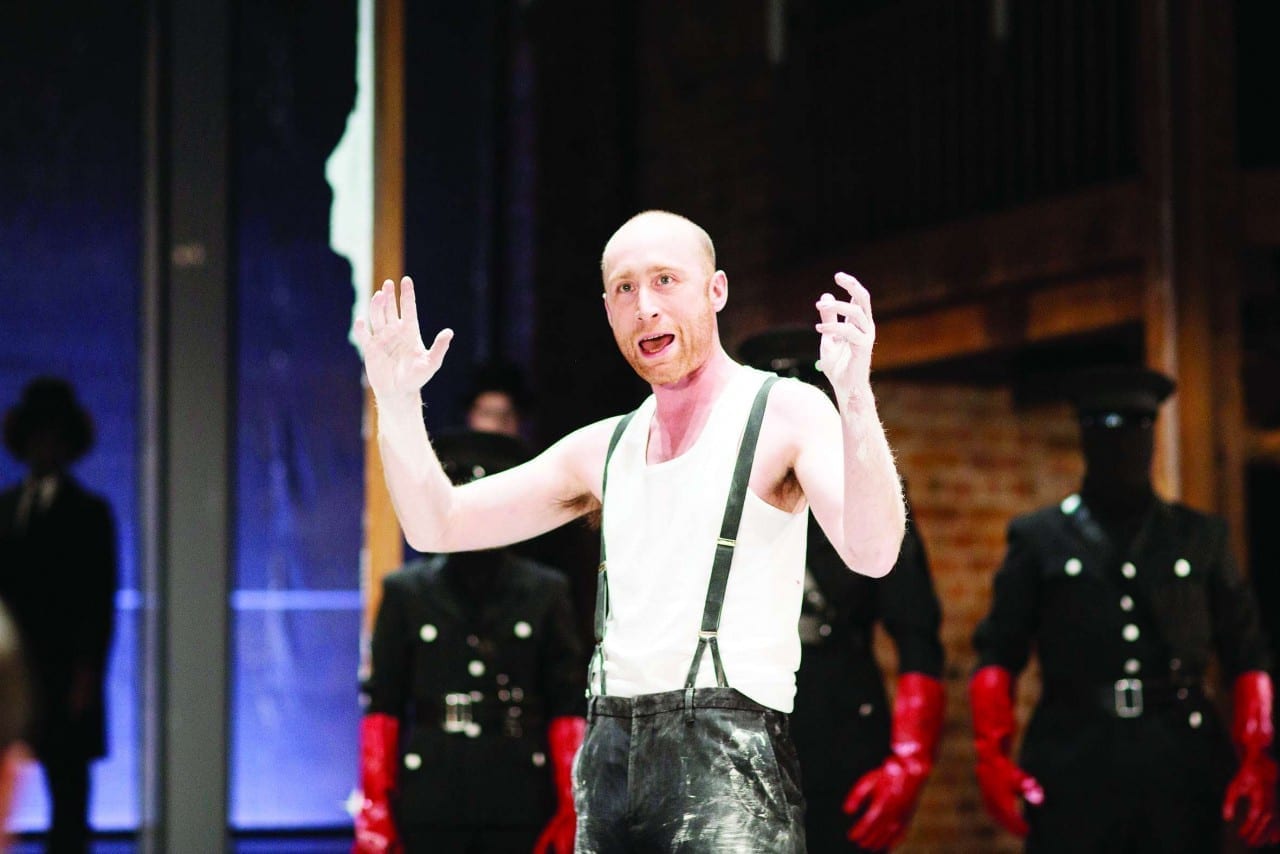The new production of Christopher Marlowe’s Doctor Faustus by director Maria Aberg is possibly the most convincing interpretation of this play that I have ever seen. Though the beginning and ending of the surviving text are acknowledged to be, by and large, by Christopher Marlowe, the truncated middle section portraying highlights of the picaresque and louche adventures of the philosopher and his devil over a supposed 24 year period have always been problematic to stage and considered to be of less merit.
In Aberg’s conception, for once, the play works as a whole; and the middle section seems to make the point that once you have made your pact with the devil it is very hard to come up with ideas of what to do with your powers that live up to your dream of acquiring all the knowledge of the universe; and, indeed, it is more likely that having won youth and strength and power, you will fritter your chances away on trivial and even demeaning adventures.
Partly this new production works so well because of the funky visual splendour and inventiveness not just of Abeg’s conception but of the designs by Naomi Dawson, lighting by Lee Curran, movement by Ayse Tashkiran and the music by Orlando Gough. It also matters a lot to have Sandy Grierson and Oliver Ryan alternating as Doctor Faustus and Mephistophilis. They act their characters as each other’s shadow in a very Jungian interpretation. The performances are thrilling and shocking by turns; and the Helen of Troy sequence is immensely moving, with Jade Croot as an appealing child-Helen instead of the usual voluptuous bore.
The sequence of the Seven Deadly Sins is brilliantly staged; and the company of Scholars is memorable, convincing and evocative of everything from bankers to religious fundamentalists of all persuasions. The setting is contemporary yet timeless, utterly “punk” in its approach, and psychologically convincing. Faustus is the striving, passionate over-reaching scholar desperate to explore the outer limits of all possible human knowledge and experience; and Mephistophilis is his twin, his double, his mirror image, sly and tricky and not entirely reliable. They are two sides of the same coin, the reverse and obverse of one personality, the ego and the id in all of us. At the start of each performance the two men face each other; each strikes a match; and the one whose flame goes out first plays Mephistophilis, the one who flame lasts longer plays Doctor Faustus. At every performance the actors might play either role.
The main praise must go, therefore, to Grierson and Ryan who pull off this doubling and also the dicing with the roles. The intensity of their performances, the energy and speed of the way they play, their mirroring of each other, the intelligence of all their line readings and movement was utterly compelling. I happened to see Grierson as Faustus and Ryan and Mephistophilis and I would happily go back to see it the other way round; and then again and again. This production, for me, is one of the most cogent and persuasive presentations of this play you are ever likely to see.

